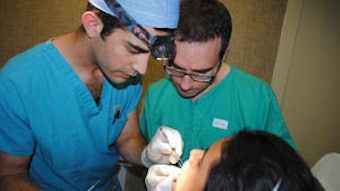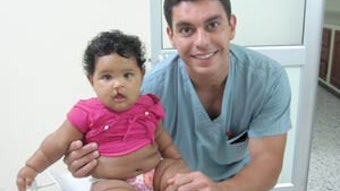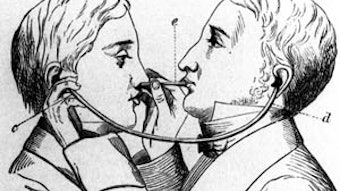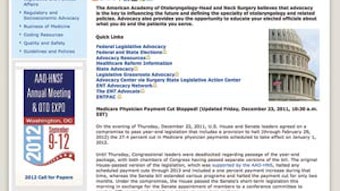2012 OIG Work Plan: Initiatives of Interest to Otolaryngology
On October 5, 2011, the Office of Inspector General (OIG) issued its Annual Work Plan for the next fiscal year, which stipulates the areas of the Medicare and Medicaid programs that the OIG (Office of Audit Services, Office of Evaluation and Inspections, Office of Investigations, and Office of Counsel to the Inspector General) will monitor and investigate in an effort to promote efficiency; and eliminate incorrect billing, waste, fraud and abuse in these programs. The OIG releases the details of their findings in reports that outline their methodology for determining payment, or billing errors, and recommendations to the Centers for Medicare and Medicaid Services (CMS) to recoup erroneous payments. In addition, the Medicare Recovery Audit Contractors (RAC) will monitor the improper payment trends that the OIG indentifies in these reports to guide their selection of new areas to audit in Medicare Part A and B programs. The OIG plans to focus on Medicare Part A and Part B claims billed in various settings; including hospitals, acute care hospitals, hospital outpatient setting, physician offices and ambulatory surgical centers. Notably, in addition to continuing their oversight of the Recovery Act, the OIG will also review several initiatives and programs created under the Affordable Care Act (ACA). We have reviewed the 2012 work plan and believe the following new OIG initiatives may impact otolaryngologists – head and neck surgeons. Members should also remember that several initiatives instituted last year are still ongoing. Some of the new areas that OIG will review in 2012 are: OIG will review the accuracy of Present-On-Admission Indicators submitted with Medicare claims by hospitals. Indicators identifying which diagnosis was present at the time of admission are required by Medicare to indicate diagnoses that were present at the time of admission versus those that developed during the hospital stay. As the ACA provides, hospitals with high rates of hospital-acquired conditions (HAC) will receive reduced payments. Due to the significant rise in surgeries and procedures performed in ambulatory surgical centers and hospital outpatient departments during the past decade, OIG will closely assess the safety and quality of care provided in these settings, identifying and comparing any adverse events in both settings. OIG will continue its review of E/M services reimbursed as part of the global surgery fee in effort to determine if practices have changed since institution of the concept in 1992. The global surgery period includes a surgical service and related preoperative and postoperative E/M services. Prior OIG work has shown improper use of modifiers during global surgery periods, resulting in inappropriate payments and therefore, OIG has taken the initiative to review the appropriate use of certain claims modifier codes during the global surgery period. OIG has commenced and will continue reviewing the extent that physicians are opting out of Medicare and determine whether physicians who opt out are still submitting claims to Medicare. OIG will review physician billing for “incident-to” services, or services rendered by a non-physician that are billed by the physician as incident to an office visit, to determine whether payment for such services had a higher error rate than that for non-incident-to services. They will also assess CMS’ ability to monitor services billed as “incident-to.” Given its goal to eliminate fraud, abuse, and incorrect billing, OIG will review payment systems controls that identify high cumulative Medicare Part B payments to physicians and suppliers. A high cumulative payment is usually made on behalf of an individual beneficiary during a specified period. In addition to its new initiatives, the OIG will continue previously launched initiatives by continuing to review: Hospitals’ controls for ensuring the accuracy and validity of data related to quality of care that they submit to CMS for Medicare reimbursement. Hospitals must report quality measures in order to avoid penalties to their Medicare payments. Medicare: Hospital claims with high or excessive payments. Medicare payments for Part B Imaging Services Medicare Part B paid claims and medical records for interpretations and reports of diagnostic radiology services (X-rays, CT, and MRIs) performed in emergency hospital settings. Medicare payments for observation services provided during outpatient visits. Medicare Part B claims and appropriate report of place-of-service codes. The appropriateness of the process for devising ambulatory surgical center (ASC) reimbursement rates under the revised ASC payment system. E/M Services to determine whether coding patterns vary by provider characteristics. Electronic Health Record E/M Claims with identical documentation across services. Medicare / Medicaid Incentive Payments for provider adoption of Electronic Medical Records. Appropriateness of Medicare payments for sleep studies and sleep test procedures. Medical necessity of high-cost diagnostic tests billed to Medicare. Medicare Outpatient Hospital Claims for the Replacement of Medical Devices: OIG will determine whether hospitals submitted outpatient claims that included procedures for the insertion of replacement medical devices in compliance with Medicare regulations. The extent to which providers comply with assignment rules (for participating and non-participating providers) Medicare Part B claims that providers bill as “not reasonable and necessary” services (identified by modifiers GA or GZ) Appropriateness of providers’ use of modifier GY (services that are not covered by Medicare) Medicare Part A and B claims submitted by top error-prone providers Since the work plan primarily focuses on providers’ compliance with Medicare requirements, it is vital that members adhere to documentation requirements, particularly given the transition to electronic health records and requirements for meaningful use. As such, we encourage members to access Academy resources and tools designed to assist with compliance prior to submitting your claims: The Academy’s Coding Hotline: 1-800-584-7773 Correct Coding Initiative Edits assists with modifier usage: https://www.cms.gov/NationalCorrectCodInitEd/NCCIEP/list.asp#TopOfPage Ensure you are aware of maximum units you can report for a service on the same patient on the same date of service (Medically Unlikely Edits (MUEs) https://www.cms.gov/NationalCorrectCodInitEd/08_MUE.asp#TopOfPage Be mindful of global periods for procedures when submitting claims Access the Academy’s website for updated CPT Codes for ENT physicians in 2012 (http://www.entnet.org/practice/Guidelines.cfm) prior to submitting your claims. Please email Healthpolicy@entnet.org for further inquiries. Reference Office of Inspector General 2012 Work Plan. http://oig.hhs.gov/reports-and-publications/archives/workplan/2012/Work-Plan-2012.pdf
On October 5, 2011, the Office of Inspector General (OIG) issued its Annual Work Plan for the next fiscal year, which stipulates the areas of the Medicare and Medicaid programs that the OIG (Office of Audit Services, Office of Evaluation and Inspections, Office of Investigations, and Office of Counsel to the Inspector General) will monitor and investigate in an effort to promote efficiency; and eliminate incorrect billing, waste, fraud and abuse in these programs. The OIG releases the details of their findings in reports that outline their methodology for determining payment, or billing errors, and recommendations to the Centers for Medicare and Medicaid Services (CMS) to recoup erroneous payments. In addition, the Medicare Recovery Audit Contractors (RAC) will monitor the improper payment trends that the OIG indentifies in these reports to guide their selection of new areas to audit in Medicare Part A and B programs. The OIG plans to focus on Medicare Part A and Part B claims billed in various settings; including hospitals, acute care hospitals, hospital outpatient setting, physician offices and ambulatory surgical centers. Notably, in addition to continuing their oversight of the Recovery Act, the OIG will also review several initiatives and programs created under the Affordable Care Act (ACA).
We have reviewed the 2012 work plan and believe the following new OIG initiatives may impact otolaryngologists – head and neck surgeons. Members should also remember that several initiatives instituted last year are still ongoing. Some of the new areas that OIG will review in 2012 are:
- OIG will review the accuracy of Present-On-Admission Indicators submitted with Medicare claims by hospitals. Indicators identifying which diagnosis was present at the time of admission are required by Medicare to indicate diagnoses that were present at the time of admission versus those that developed during the hospital stay. As the ACA provides, hospitals with high rates of hospital-acquired conditions (HAC) will receive reduced payments.
- Due to the significant rise in surgeries and procedures performed in ambulatory surgical centers and hospital outpatient departments during the past decade, OIG will closely assess the safety and quality of care provided in these settings, identifying and comparing any adverse events in both settings.
- OIG will continue its review of E/M services reimbursed as part of the global surgery fee in effort to determine if practices have changed since institution of the concept in 1992. The global surgery period includes a surgical service and related preoperative and postoperative E/M services. Prior OIG work has shown improper use of modifiers during global surgery periods, resulting in inappropriate payments and therefore, OIG has taken the initiative to review the appropriate use of certain claims modifier codes during the global surgery period.
- OIG has commenced and will continue reviewing the extent that physicians are opting out of Medicare and determine whether physicians who opt out are still submitting claims to Medicare.
- OIG will review physician billing for “incident-to” services, or services rendered by a non-physician that are billed by the physician as incident to an office visit, to determine whether payment for such services had a higher error rate than that for non-incident-to services. They will also assess CMS’ ability to monitor services billed as “incident-to.”
- Given its goal to eliminate fraud, abuse, and incorrect billing, OIG will review payment systems controls that identify high cumulative Medicare Part B payments to physicians and suppliers. A high cumulative payment is usually made on behalf of an individual beneficiary during a specified period.
In addition to its new initiatives, the OIG will continue previously launched initiatives by continuing to review:
- Hospitals’ controls for ensuring the accuracy and validity of data related to quality of care that they submit to CMS for Medicare reimbursement. Hospitals must report quality measures in order to avoid penalties to their Medicare payments.
- Medicare: Hospital claims with high or excessive payments.
- Medicare payments for Part B Imaging Services
- Medicare Part B paid claims and medical records for interpretations and reports of diagnostic radiology services (X-rays, CT, and MRIs) performed in emergency hospital settings.
- Medicare payments for observation services provided during outpatient visits.
- Medicare Part B claims and appropriate report of place-of-service codes.
- The appropriateness of the process for devising ambulatory surgical center (ASC) reimbursement rates under the revised ASC payment system.
- E/M Services to determine whether coding patterns vary by provider characteristics.
- Electronic Health Record E/M Claims with identical documentation across services.
- Medicare / Medicaid Incentive Payments for provider adoption of Electronic Medical Records.
- Appropriateness of Medicare payments for sleep studies and sleep test procedures.
- Medical necessity of high-cost diagnostic tests billed to Medicare.
- Medicare Outpatient Hospital Claims for the Replacement of Medical Devices: OIG will determine whether hospitals submitted outpatient claims that included procedures for the insertion of replacement medical devices in compliance with Medicare regulations.
- The extent to which providers comply with assignment rules (for participating and non-participating providers)
- Medicare Part B claims that providers bill as “not reasonable and necessary” services (identified by modifiers GA or GZ)
- Appropriateness of providers’ use of modifier GY (services that are not covered by Medicare)
- Medicare Part A and B claims submitted by top error-prone providers
Since the work plan primarily focuses on providers’ compliance with Medicare requirements, it is vital that members adhere to documentation requirements, particularly given the transition to electronic health records and requirements for meaningful use. As such, we encourage members to access Academy resources and tools designed to assist with compliance prior to submitting your claims:
- The Academy’s Coding Hotline: 1-800-584-7773
- Correct Coding Initiative Edits assists with modifier usage: https://www.cms.gov/NationalCorrectCodInitEd/NCCIEP/list.asp#TopOfPage
- Ensure you are aware of maximum units you can report for a service on the same patient on the same date of service (Medically Unlikely Edits (MUEs) https://www.cms.gov/NationalCorrectCodInitEd/08_MUE.asp#TopOfPage
- Be mindful of global periods for procedures when submitting claims
- Access the Academy’s website for updated CPT Codes for ENT physicians in 2012 (http://www.entnet.org/practice/Guidelines.cfm) prior to submitting your claims.
Please email Healthpolicy@entnet.org for further inquiries.
Reference
- Office of Inspector General 2012 Work Plan. http://oig.hhs.gov/reports-and-publications/archives/workplan/2012/Work-Plan-2012.pdf













